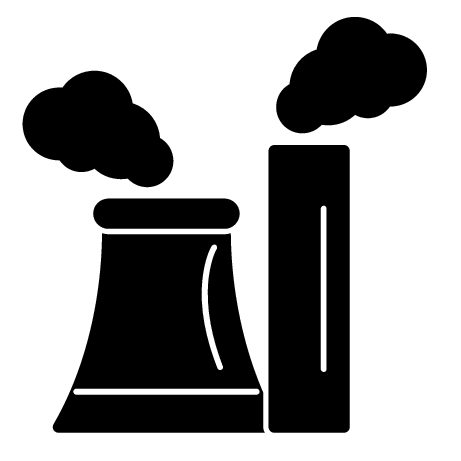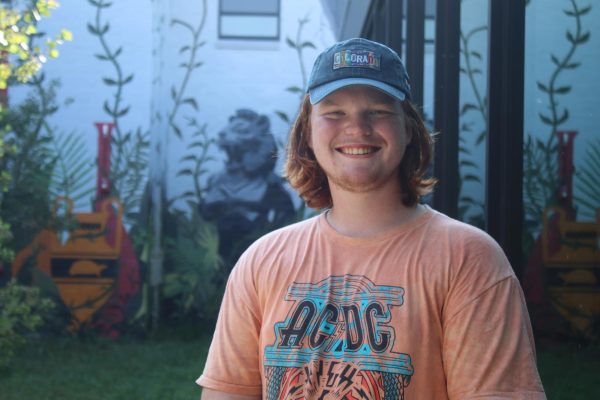
I don’t believe in vegetarian “bacon”, I keep my heat 2 degrees warmer in the winter than you do, and though my car would probably fail any extensive emissions test, I drive it anyways.
I’m bad at recycling, my phone was made through the artisanal craftsmanship of toddlers in a Congolese Cobalt Mine, and I probably take international flights more frequently than I take the bus. All of my fashion is fast — and all of my consumption is conspicuous. I love plastic bags, and I hate paper straws.
If there was a checklist of carbon cardinal sins, I’d probably cross off most of its boxes.
Of course I recognize climate change as a serious problem — maybe even the most dire one facing our generation, but often it seems as though my individual actions won’t impact the outcome of a seemingly inevitable climate catastrophe, and my lifestyle mirrors that. I’d love to say that I’m carbon neutral, but I’m positively carbon positive. Regardless of whether I one day become the household eco-warrior I aspire to be, it’s important to recognize that none of our individual carbon footprints compare to that of the Shaq-Sized shoes being worn by the fossil fuels industry.
Personal responsibility is one thing, but collective responsibility is far more important. In order to stop the worst impacts of climate change, we need to start holding our worst offenders responsible.
Recently, Evergy Power reversed course on its promise to phase out Lawrence’s coal power plant for renewables — despite coal being the most polluting source of electricity generation. This reversal presents a number of challenges not only in the fight against global climate change, but also as a dangerous risk to our local community.
According to a study published in November by researchers from George Mason University, The University of Texas at Austin, and Harvard T.H. Chan School of Public Health, the fine particulate air pollutants generated from coal power are uniquely associated with more than double the risk of death from other sources. Alarmingly, the researchers estimate that our town’s coal plant can be associated with around 180 deaths since 1999, not to mention its countlessly-uncountable impacts on respiratory health.
Additionally, coal presents a potential ecological threat for our local ecosystem, as explained by the Sierra Club.
“These plants not only poison our air, they leach heavy metals into our water supply that devastate local wildlife and undermine the purity of our drinking water sources,” the environmental group said in a press release on its website.
The Sierra Club notes that coal power is economically inviable.
“While the cost of renewables has trended downward over time, fossil fuel prices have skyrocketed,” the Sierra Club wrote. “Last year alone, solar and wind energy were a whopping 40% cheaper on average than fossil fuels.”
In reversing course on its decision, Evergy Power is asking our community to pay more, to endanger our natural ecosystem, and risk our lives with dirty air.
Let’s start treating fossil fuel companies with the same standards to which we hold ourselves. You’d probably be angry if your neighbor was dumping trash into your yard, so why wouldn’t you be if they were giving you asthma?
Let’s get real bleak here for a moment. That study that I mentioned earlier — the one that showed 180 deaths associated with Lawrence’s coal power plant — nationwide, that death toll reaches 460,000. Though I’m sure it would benefit our local ecosystem and ease some strain on our pocketbooks, closing down the plant here is not going to be the deciding factor for a worldwide fall or rise of a degree or two.
There’s something about the idea of caring about climate change that, to many of us, can seem incredibly lame. Slow, incremental progress toward a nebulous goal is not the most exciting clarion call for a movement.
Yet, it needs to happen.
Personally, I’ll keep trying to be better at recycling. Hell, I might even use a paper straw — though you’ll never catch me eating vegetarian “bacon.” You should try to be conscious of your own impact as well.
But until we all start taking our collective incremental steps more seriously, we’re going to need to accept that we’ll be left in a situation where it may be too late to take drastic action. We need to stop climate change well before it’s too late to say, “It’s now or never.”
On the other hand, we could always not.
After all, it would be unfair to the Emir of Qatar: He has palaces to maintain, exotic animals to train and superyacht parties for hosting. The Emir has worked so hard for his generational wealth, and it’s not his fault that you weren’t born into a royal family in the Persian gulf.
Anyways, I heard that he’s thinking about buying his 11th plane, and under no circumstance should he be forced to compromise his self-care routine for you. And if climate change truly is as bad as all those scientists say, then the Emir sends his regards.
From Mars.




